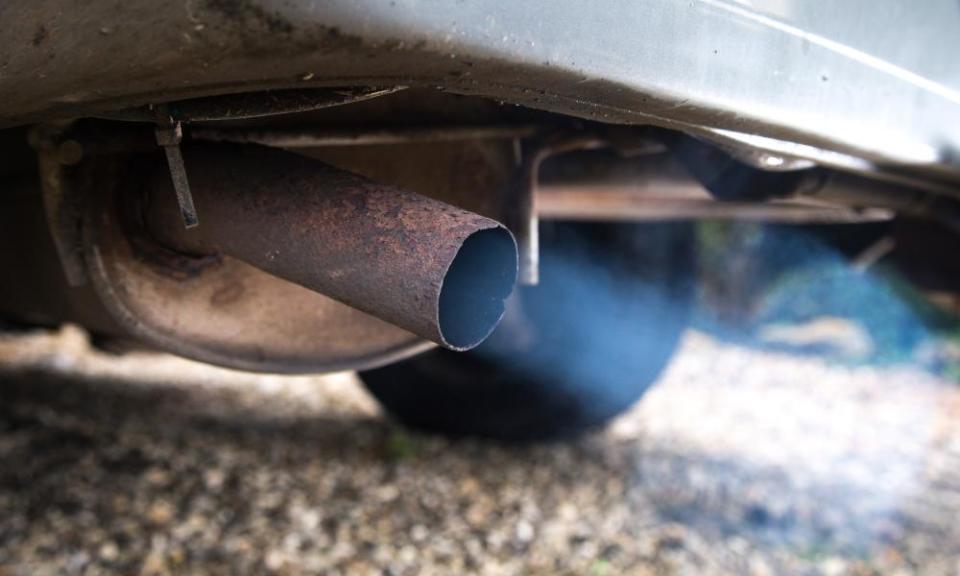UK has broken air pollution limits for a decade, EU court finds

The UK has “systematically and persistently” broken legal limits on toxic air pollution for a decade, the court of justice of the EU (CJEU) has ruled.
Levels of nitrogen dioxide, mostly from diesel vehicles, remain illegally high in 75% of urban areas and on Thursday the court said the UK had failed to tackle the problem in the shortest possible time, as required by law.
The case began before the UK left the EU and the legal limits remain in UK law. The UK could face financial penalties if it still fails to take action to comply. The court also ordered the UK to pay the legal costs incurred by the European commission. UK ministers had already been defeated three times in British courts by environmental lawyers ClientEarth.
Dirty air causes 40,000 early deaths every year in the UK and scientists think the pollution is likely to be damaging every organ in the body. A landmark coroner’s report in December found that illegal levels of air pollution had contributed to the death of nine-year-old Ella Kissi-Debrah.
“The government has been dragging its feet for too long on the air pollution crisis, downplaying the problem and passing the buck to local authorities,” said Katie Nield, of ClientEarth. The government’s own research shows that clean air zones, where charges are used to deter the most polluting vehicles from urban centres, are by far the most effective action. But only one has been implemented, in London, with others put on hold, delayed or rejected.
“It’s up to the UK government to work with local leaders to make sure these schemes are put in place as quickly as possible, alongside support for people and businesses to move to cleaner forms of transport,” Nield said. “While authorities dither and delay, people’s lives are being ruined by toxic air.”
A proposed Office for Environmental Protection will be the new domestic institution holding the UK government to account. But Nield said: “There are big question marks as to whether the OEP will have the independence, authority and resources [it needs].”
A spokeswoman for the Department for Environment, Food and Rural Affairs said: “We are considering this judgment from the CJEU. We continue to work at pace to deliver our ambitious NO2 plan and our 2019 clean air strategy, which was praised by the WHO as an example for the rest of the world to follow.”
She said the government’s 2017 NO2 plan and its 2018 supplement went further than before in requiring local authorities to assess how to bring down air pollution levels in the shortest possible time.
If the UK fails to end illegal levels of pollution within a reasonable period, the European commission could issue a formal letter requiring the UK to remedy the situation. If the UK fails to do that, the commission could seek the imposition of financial penalties by the CJEU, although it is uncertain whether it will have the power or the inclination to do this, now the UK is no longer an EU member.

 Yahoo Finance
Yahoo Finance 